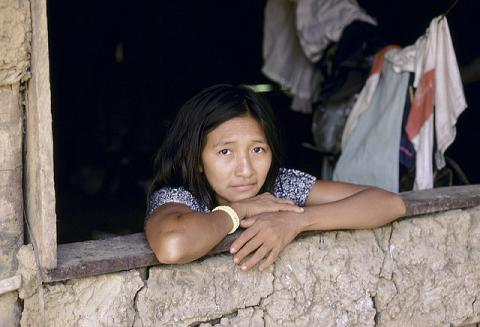
In today’s gospel a lesson on the relationship of love and forgiveness is presented to us. While at a banquet, Jesus is more impressed with the tender acts of washing and anointing from a woman seeking forgiveness and healing than the fancy fare offered by his Pharisee host. By accepting this woman and her behavior, unorthodox to say the least, especially in the context of first century Palestinian Judaism, I believe that a transformation occurred in her life that allowed healing and empowerment. Likewise, I think Jesus was profoundly touched by all of the marginalized people who he encountered on his journey of ministry. The woman’s faith and love propelled her to act and Jesus’ parting words were, “Your faith has saved you; go in peace.” I am left with the impression that this was a life-changing moment for the woman as the other men present looked on in shock.
In my ministry with women in situations of domestic violence on the periphery of São Paulo, I have also experienced powerful moments of transformation in women’s support circles. Jesus’ love and forgiveness of the woman in the gospel today is alive as we share our struggles and weaknesses, challenge each other and reach towards wholeness in a world broken by violence. I offer one journey.
Mariana is petite, Japanese-Brazilian, and is blind in one eye. Her first husband left her when their son, Allan, needed a kidney transplant as a small child. Mariana’s second child, Aline, was born with heart complications and died when she was four years old. Mariana remarried a man who physically abused Allan and Aline. When Mariana finally separated from him because of his abusive behavior, she was beaten so badly that she lost sight in her left eye. Now 14, Allan struggles with his emotions due to the trauma experienced in his short life. Most recently, Mariana reencountered a high school sweetheart but he becomes jealous when she goes on outings and spends time studying for an exam that would allow her to get a government job.
After receiving legal and psychological services through a local non-governmental organization, Mariana’s therapist recommended that she participate in a weekly support group on health issues that I facilitated for four months. During the first half of the course, Mariana often came to the group crying and had difficulty expressing her emotions in front of the other women. Mariana had very low self-esteem and feelings of shame, she felt isolated and alone, drowning in self-pity. Slowly, she opened up, sharing with other women. She felt challenged by her classmates, but not judged, and appreciated the exchange of ideas. Mariana realized that she was not alone in her quest for self-understanding, and this helped her put things in perspective.
One day, Mariana was telling the story of how torn she felt when her boyfriend was acting jealous about her studies. Terezinha, a fellow participant, invited her to really reflect on whether his behavior was making a positive impact on her life. Mariana also started doing the exercises I taught on a daily basis, diminishing tension in her shoulders.
Besides the physical health content including the prevention of breast and uterine cancer, the course focuses on relaxation techniques. These include stretching and breathing exercises, massage, guided imagery and meditation. Many women who are victims of domestic violence struggle with their mental health, including anxiety and depression. Our health class opens a space for them to reflect on the healthy management of emotions especially anger and fear.
On the last day of the course, Mariana brought photos of her deceased daughter and was able to calmly share stories about her daughter. She also commented that the course had helped her self-esteem and encouraged a positive attitude. Mariana reflected, “Violence begets violence. My second husband grew up constantly being beaten by his father. In our family whenever there was a problem or a stressful situation, all he knew was to hit. I want to break that cycle. When I am upset with Allan about something, I talk to him, send him to his room, or start taking away privileges. I need to be an example to him of someone who is strong but doesn’t hit.”
“Your faith has saved you, go in peace."
Photo of Brazilian woman from the World Bank Photo Collection on Flickr.
